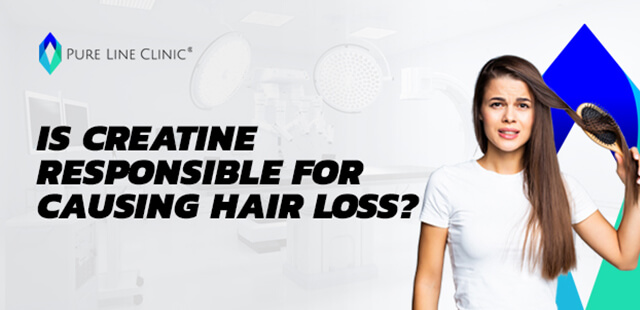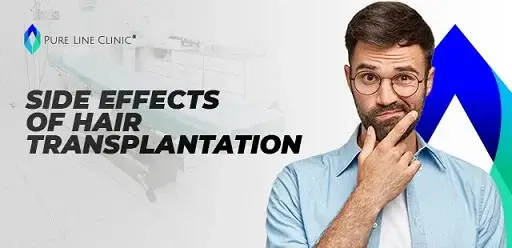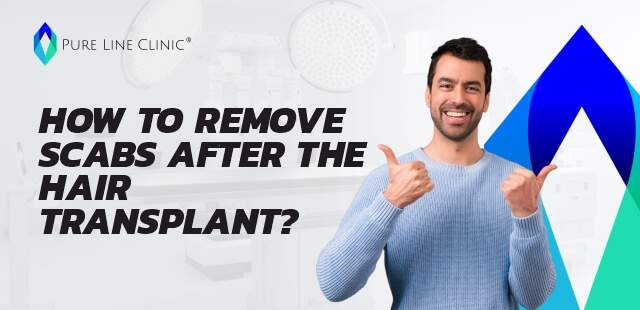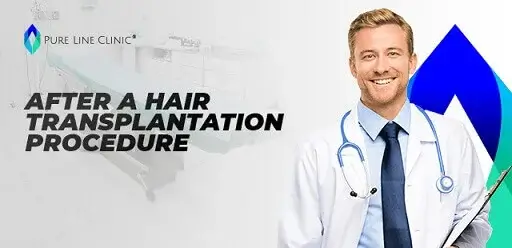
Is a hair transplant right for you?
By 30 plus years of age, almost two-thirds of men usually encounter visible hair loss or baldness. Men aren't the only people affected by this symptom: women are also a part of this race.
Unfortunately, it looks like 1 of each ten clinics is doing nothing to cure the hair loss issues; instead, they are draining your bank account and giving false hope for any practical result.
However, there are the proper techniques and procedures for hair transplants that allow patients to obtain exact and sustainable outcomes.
For those who are eligible for this treatment, a hair transplant can give beneficial results, but the stage and severity of your baldness are what will decide the best choice for you.
With remarkable developments in today's hair transplant technology, patients now have diverse treatment choices for curing thin hair and balding. At Pure Line Clinic ®, we offer FUE (follicular unit extraction) to help patients accomplish their goals confidently.
Who is Unsuitable for a Hair Transplant?
-Full Baldness May Be Hard To Cure:
Above all, patients with complete scalp hair loss would probably be unsuitable for hair transplantation. Such treatments are most appropriate for people with Androgenic Alopecia (Female or Male Hereditary Baldness) who are going bald, balding, or have an uncovered or patchy scalp.
-Weaker Donor Sites will Effect The Results:
There's not much that could be accomplished for those patients with thin donor sites. Based on the situation, if the back of the scalp has a small supply, your surgeon may use body hair. A consultation with a hair transplant professional will enable you to advise on how best to proceed.
-Age Matters:
Although there are no limitations on what age one should have a hair transplant operation, there perfect candidates between the ages of 25-and 65. Patients under 25 also suffer premature hair loss, which may improve as they get older. Patients over the age of 65 appear to have thinning hair, which does not perform at its full. Anyone bald or has very few hairs left can not undergo a hair transplant treatment because there is little or no hair to the implant, which is a significant aspect of this procedure. If you are older than 65, you may still be considered for hair transplant treatment. It'd rely on just that next evaluation.
-Your Hair Loss Type Matters:
Patients with occasional hair loss may have to go through a stability phase before being declared suitable applicants for the treatment. Your baldness takes typically six to nine months to recover and develop in a perceivable direction.
Securing patients' desires is also pretty crucial for the right hair transplant. Expecting a hair transplant surgery with a lower hairline or full head of hair is impossible when you have a weak donor site. Whatever the cause, if your standards can not be met, you will not be qualified for the treatment, or if you still want to go for surgery, it will be your choice.
So if you feel you are affected by one of the above situations – don't despair now!
I Am Not Qualified For a Hair Transplant! What Do I Do Now?
Remember, there is more than one choice for a hair transplant. A trichologist should always be your first point person for any hair-related problem. They analyse scalp and hair, and they are usually experienced in curing hair loss.
Who is the Best Candidate?
Men and women all over the world can be successful hair transplant applicants. There are two things you need to consider for a hair transplant:
- Sufficient healthy hair on your scalp is a must that can be transplanted into the recipient region where the hair is required
- Capability to re-grow hair on your scalp's thinning region
You will find out if you have both mentioned things or not during your consultation with a dermatologist. You'll be given a detailed scalp evaluation. You may also need a blood test to determine why you're getting bald. This will test for things in your system and cause hair loss. Many patients need a technique known as a scalp biopsy. During the appointment, the dermatologist will quickly and smoothly take what's required for the scalp biopsy.
If the exams and tests prove that you are a successful hair transplant applicant, your dermatologist will tell you what outcomes you can obtain. A full head of thick hair might be unrealistic, but the destination can be the fulfilment of hair in the target area.
Bottom Line
So if you're thinking about getting a hair transplant treatment, make sure you do your investigation and research to see if you're eligible or not. Let’s fill out a free consultation form to get more details about hair transplants at Pure Line Clinic ®. We hope this article helped you to overcome doubts about this procedure.

Is Hair Transplant Permanent?
A hair transplant produces clearly long-lasting, permanent outcomes.There are some situations that need attention.

How Can I Find Best Hair Transplant in Turkey?
We are aware of how difficult it is to find the best hair transplant clinic in Turkey. To make this selection easier, let’s talk about the Pure Line Clinic ® difference.

Can You Wear a Hat After Hair Transplant?
Most of specialists will advise you to hold off wearing a hat or cap for at least ten days. Your transplanted grafts must root in the balding areas for 7–10 days.

FUE Hair Transplant Planning and Expectations
Setting realistic expectations is beneficial for all surgeries. Knowing what to expect after FUE hair transplants will be extremely beneficial.

How Much Does Hair Transplant Cost in Turkey?
Have you been looking to have a hair transplant for a while and you think how much it will cost in Turkey? In this article, we are talking about hair transplant costs in Turkey.

Is Hair Transplant Safe?
In general, a hair transplant is a safe surgery, however like with any surgical process, there is always a tiny risk of: bleeding. infection. a hypersensitivity to the anesthetic.

What is Regenera Activa Treatment?
Regenera Activa is an innovative, non-surgical hair restoration treatment that employs autologous micrografts to stimulate follicular regeneration and combat hair loss effectively.

Is Creatine Responsible for Causing Hair Loss ?
Creatine is utilized in hair strengthening treatments. But, does taking creatine make you lose your hair?

Side Effects of Hair Transplantation
The Pure Line Clinic ® says that hair transplants are generally safe when a qualified, experienced medical team performs them. However, even with successful hair transplants, some side effects can happen.

Hair Transplant for Women
Ladies can also go through hair transplantation at the Pure Line Clinic ®. It is usually possible to have a hair transplant without shaving.

How to Remove Scabs After the Hair Transplant?
Some patients might begin to worry if the scabs after a hair transplant don’t remove after a few days.

Alopecia Risk Factors and What to do Them
Alopecia is not always caused by genetics, although people with a family history of alopecia are at a higher risk of acquiring some kind of alopecia.

After a Hair Transplantation Procedure
Patients need to pay attention to many issues to get the best result in the post-hair transplant process.

How Long Does a Hair Transplant Last?
It is important to get your hair transplant performed by a qualified and reputable hair transplant specialist if you want it to last a lifetime.

Ultimate Hair Transplant FAQ Guide
We understand that deciding to undergo hair transplant surgery can be a big decision, and you likely have many questions. That’s why we’ve curated this guide to provide you with answers to the most commonly asked questions about hair transplant surgery.